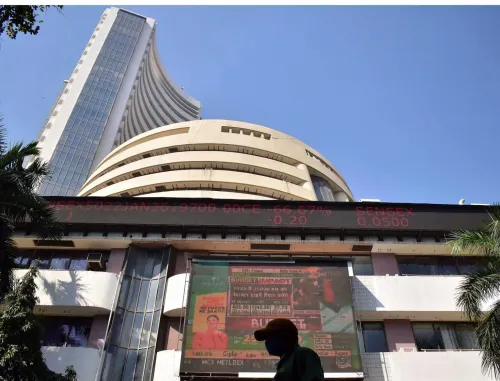India's Resilience Against US Tariff Impacts: A Report

Synopsis
Key Takeaways
- India's GDP growth projected at 6.5% for 2025-26.
- Low external vulnerability with 19% external debt to GDP.
- Inflation expected to average 4.5% this fiscal year.
- Robust domestic market reduces vulnerability to US tariffs.
- Emerging markets will see varied growth trends.
New Delhi, April 2 (NationPress) India is set to maintain its status as the fastest-growing economy among the advanced and emerging G-20 nations. The substantial size of its domestic market renders the nation less susceptible to potential impacts from US tariff policies.
The report points out that India possesses a low external vulnerability index, attributed to its relatively low external debt to GDP ratio of 19 percent and minimal reliance on the US market, accounting for only 2 percent of GDP in exports.
According to Moody's analysis of emerging markets, India's GDP growth is anticipated to be 6.5 percent for the period of 2025-26, remaining the highest among the advanced and emerging G-20 countries. This growth is supported by tax reductions and sustained monetary easing from the Reserve Bank as inflation rates decline.
The report predicts that India's inflation will average 4.5 percent in the current fiscal year, a decrease from 4.9 percent the previous year. This trend is expected to facilitate a more lenient monetary policy, characterized by lower interest rates and increased liquidity in the economy, fostering economic growth.
Moody's remarked, 'Larger, diversified, and domestically-driven emerging market economies like India and Brazil are better positioned than smaller counterparts to attract capital and endure cross-border outflows.' These nations benefit from robust domestic capital markets and low external vulnerability indicators.
In contrast, smaller and more open economies are more vulnerable to investor sentiment fluctuations and currency volatility, particularly those with significant foreign currency-denominated debt, such as Argentina and Colombia, as explained by Moody's.
The report also mentions that while emerging market growth is expected to slow overall in 2025-26, it will remain strong, with considerable differences among countries. Growth in the Asia-Pacific region will continue to be the highest; however, its integration into global trade renders it particularly vulnerable to US tariffs and their potential to hinder growth.










